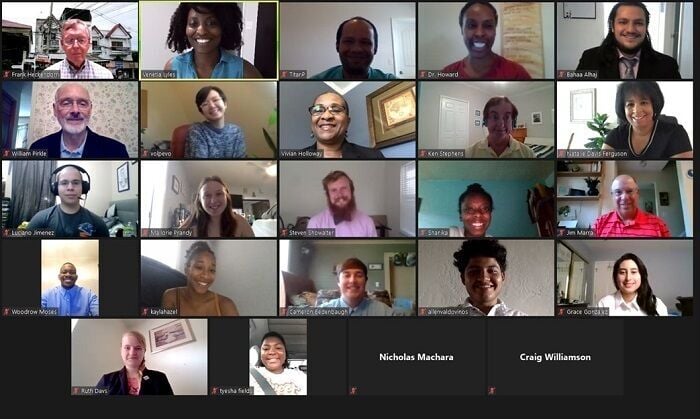Despite limitations due to the COVID-19 pandemic, students have been interning across the Environmental Management complex this summer with the help of creativity, technology and a desire to learn.
The EM Minority Serving Institutions Partnership Program successfully hosted and mentored 32 student interns virtually. The interns from minority serving institutions participated in several areas of research, engineering and environmental science projects.
Research scientists and engineers from the Idaho, Los Alamos, and Argonne national laboratories, minority serving institution professors, and the DOE Idaho Liaison Office assisted with the internships.
The MSIPP Summer Intern Program has two components: research and educational.
The virtual research activities addressed cybersecurity issues and explored technology focused on wind energy. The virtual educational interns took courses in environmental sciences and engineering.
Activities in those courses ranged from creating simple technology to improve water quality to planning individual engineering projects using remote environmental sensing.
Some of the Savannah River Site environmental sciences virtual interns, professors and directors participated in virtual end-of-summer presentations.
National internships
Florida International University’s DOE Fellows participated in internship programs at national laboratories and DOE contractors across the U.S.
Eight DOE Fellows took part in remote or hybrid – which means remote and onsite – internships, working with mentors on topics related to robotics, environmental monitoring, high-level waste, and machine learning and artificial intelligence.
At INL Site cleanup contractor Fluor Idaho, some of the 24 student interns supporting projects across the 890-square-mile DOE site are working remotely.
The interns attend colleges and universities primarily in the northwest U.S. and are seeking degrees in information technology, engineering, health and safety, and radiological protection.
The interns prepare presentations at the end of the summer that detail the types of support they provided, what they learned, and how their experiences have benefited their education or potential future employment opportunities.
At WIPP, management-and-operations contractor Nuclear Waste Partnership hired 11 summer interns this year. NWP President and Project Manager Sean Dunagan had pushed to keep the program in place while ensuring the interns would perform meaningful, challenging work.
Most NWP internships focused on engineering, including mechanical, chemical, electronics and computer engineering. Other internships involved business administration disciplines for training and procedures and emergency management departments.
In-person social activities, meetings and tours were not held due to COVID-19.
Nearly three dozen student interns are continuing their distance-learning experience at Hanford’s tank farms.
WRPS, EM Office of River Protection contractor, has 34 interns this year, providing participants with valuable real-world experience and networking opportunities. This year is a very different, however, with interns serving in a teleworking capacity and spending minimal, if any, time onsite. Meetings are held using Microsoft Teams, and collaboration abounds.
“It’s a really good experience, and I have great support from my mentors,” said Jeff Natividad, a WRPS intern and one of the eight DOE Fellows who have participated in internships across the DOE complex this summer. “In the classroom, you build a product; being on the consumer side is a different experience altogether.”





